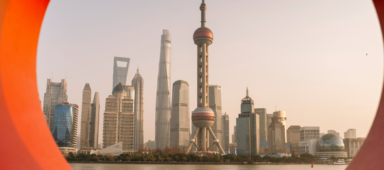As co-working takes off around the globe, shared workspaces are set for rapid expansion
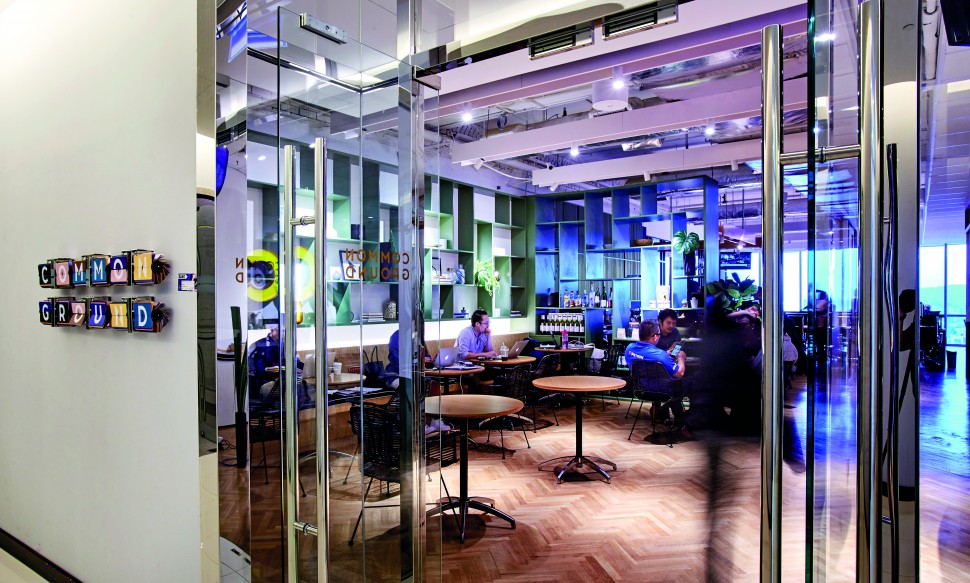
At 9 am on Monday in Common Ground, a two-storey penthouse in the affluent Kuala Lumpur suburb of Damansara Heights, workers arrive to start their week at the office. They exchange greetings, open laptops and order soy lattes and macchiatos from the coffee bar, The Grind. The space they settle into is airy and bright; floor-to-ceiling glass windows optimise an impressive view of the city skyline, furnishings are opulent and contemporary, and the whole vibe is more high design than corporate clone.
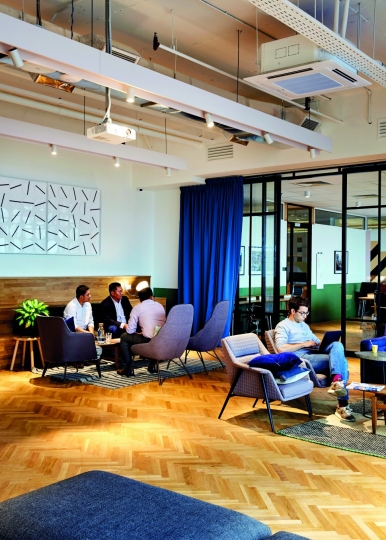
Side by side at one long desk, a graphic designer, an accountant and me, a freelance writer, tap away on keyboards, exchanging occasional small talk and enjoying our first caffeine hit of the day. Next door, in a lounge area, a Pilates instructor, a personal trainer and an interior designer mingle. Meanwhile, in the fixed desk area, web developers, consultants and marketeers work alongside people who run an online retail platform.
It's a unique environment, a high-energy vocational smorgasbord, a social hub and the result of one of the biggest global trends of the decade: co-working.
A RISING WORKFORCE
Over the last couple of decades, the sharing-economy generation has already changed the way we live, buy, commute and vacation. It makes sense that, eventually, their influence would change the way we work. Companies like Airbnb and Uber have become household names, and co-working is based on the same principles: the power of collaboration and collectives, sharing resources and economies of scale. Throw in an Instagram-friendly environment and you've got a winning combination for millennials looking for an alternative to large-scale corporate life.
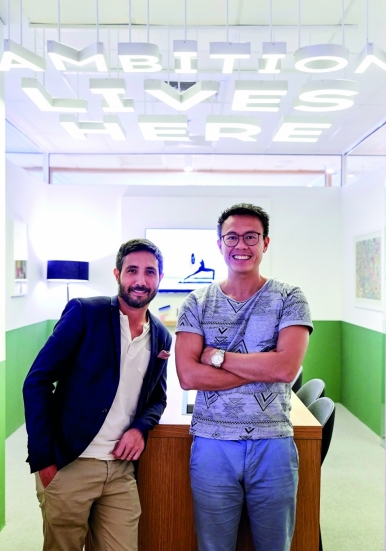
And the figures are compelling.
A decade ago there were just 75 shared workspaces registered in the world; by the end of 2017, it is estimated there will be 13,500 co-working locations housing 1.2 million people. By the year 2030, co-working spaces are expected to make up 30 percent of the global office market. In Asia, demand for co-working offices has grown by 15 percent annually, with large metropolises like Bangkok, Hong Kong and Singapore leading the supply. Now, co-working spaces are cropping up all over Kuala Lumpur, with one operator leading in both size, scale and ambition.
MALAYSIA'S BIGGEST CO-WORKING SPACE
Launched in March 2016, after a USD700,000 (RM3 million) renovation, Common Ground was founded by ex-Catcha Group executive Erman Akinci and former CEO of Guocoland's Tower REIT Juhn Teo.
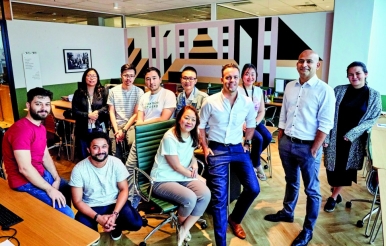
After watching the co-working industry flourish in North America and Europe, they decided to replicate the model. “We looked at what other operators are doing in places like London and Chicago and then closer to home in Hong Kong and Singapore and we looked at how we could bring that model to a Malaysian market,” says Teo.
“It's essentially taking the serviced office model and injecting it with colour and life and making it collaborative and fun,” he explains. “We've partnered with a lot of businesses to add value to our membership packages because we know Malaysians like added value, so we offer gym memberships and tax and accounting advice and we have yoga classes and workshops, which are great for people to get to know each other.”
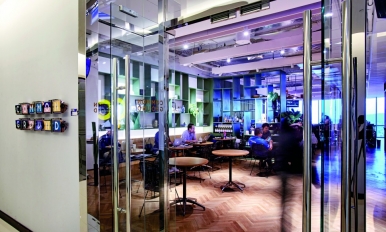
“It's all about cultivating a culture,” agrees Akinci. “People who are drawn to the co-working way of life are looking for experiences and functionality in equal measure, and that's what we deliver.” The 17,000-square-foot venue is now home to 250 people who work from a hot-desk space, open plan fixed desks or private offices. Teo estimates that two-thirds of the tenants are small businesses, while one-third are individuals who would previously have been working from home or nomadically between Starbucks and the likes.
In just four months, Common Ground is close to 90 percent occupied; Teo and Akinci say they are “quietly delighted” with the reception and they're aiming to open a further four Common Ground locations in Kuala Lumpur in the coming months. “We're planning to open offices in Mont'Kiara, Ampang, KL Sentral and T.T.D.I. by the end of the year,” says Akinci.
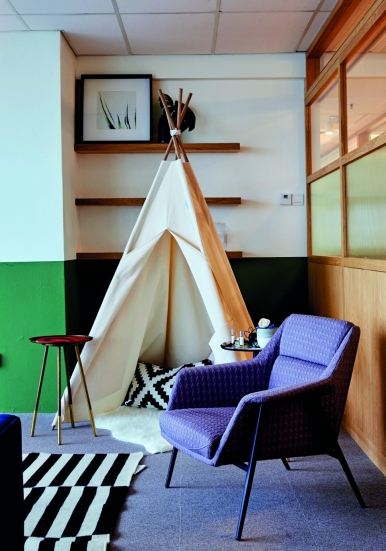
They also planning to open an office in Manila in the Philippines by the end of the year and Jakarta in Indonesia early in 2018.
A PLACE TO COLLABORATE
So, what's in it for tenants? The number one benefit cited by co-workers is the ability to meet potential partners and collaborate.
“Being here opens up a much bigger network for me,” says health and fitness guru and professional YouTuber Joanna Soh. “This is important because besides my own fitness videos, I've created a female network called Her Network where I'm collaborating with other female experts to create online content relating to things like makeup, yoga and wellness.”
Common Ground is where Soh met fellow co-worker and personal stylist Soo Hua, who has since become a collaborator on Her Network. Her makeup expert, beauty vlogger Charis Ow, also co-works from Common Ground. “It's helped me grow my business for sure, and because I'm a small media company, with just four employees, working here means we're not isolated, we're meeting people and finding opportunities,” adds Soh.
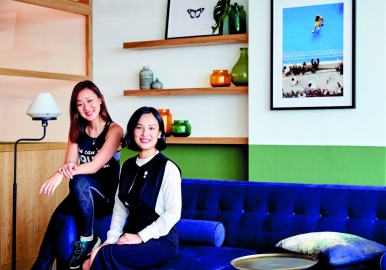
KEEPING IT LOW MAINTENANCE
While freelancers and entrepreneurs enjoy the networking opportunities that co-working presents, larger companies are also seeing big benefits to relocating to co-working spaces.
Hyperlab is a Kuala Lumpur-based artificial intelligence technology company building messaging platforms for websites. With 15 employees and growing, they were looking to expand into a larger office when they discovered Common Ground. They now operate from one small private office while also taking fixed desks in an open plan area.
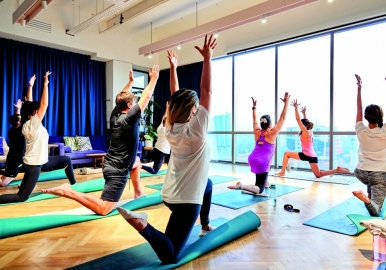
“It allows our team to feel like they're part of a much bigger company and enjoy the benefits of that,” says CEO Vic Sithasanan. “There’s lots of activities going on, new people to meet, good coffee and a great sense of community.”
The other advantage to small companies like Hyperlab is that office administration and housekeeping are all taken care of. “There's always paper in the printer. If there's a maintenance issue, someone will fix it and we don't have to worry about cleaners and security,” says COO Janet Teo. “That's really appealing to us as it means we can focus on growing the business.”
“We get to be part of a really well-designed, well-run, beautiful office space with a strong sense of culture without having to invest our own time and energy into running it. It makes good business sense,” adds Sithasanan.





